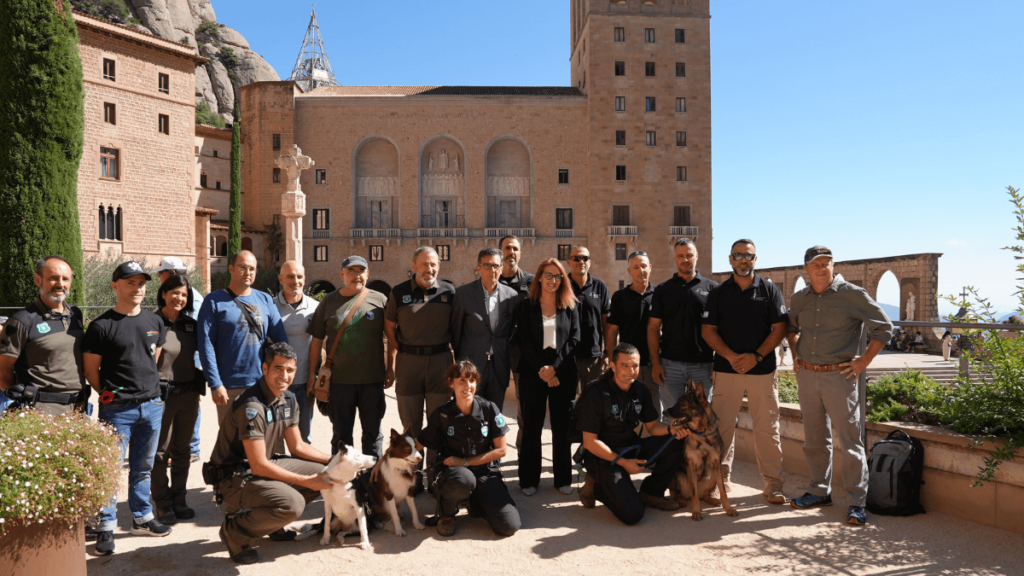We have just carried out our first international K9 Training in cooperation with the Special Canine Group (GEK9) of the Rural Agents Corps from Catalonia. Under the title “K9: Dogs for Conservation” it attracted about a dozen international rangers from Israel, South Africa and various parts of Spain.
Housed in the impressive atmosphere of the Monastery of Montserrat, the participants were introduced to the model of GEK9. It specializes in carrying out monitoring, inspection and cooperation services within the framework of integral environmental management, which require specially trained dogs. The Director General of Rural Agents, Elisenda Pérez Esteve, underlined the value of the work of GEK9 and the commitment of the Directorate General to promote the K9 unit as well as other specialized groups at the opening of the training. This, she said, is part of the strategy to become a specialized and technical institution to work more efficiently and effectively.
The course focused on specializing the dogs in poison detection. One training session dealt with the collaboration between GEK9 and the “Grup Especial de Verins i Antifurtivisme” (GEVA – Special Group for Poison and Anti Poaching) and another with the investigation of poison and wildlife carcasses with trained dogs. In addition, participants learned about veterinary care for working dogs, training practices, and saw hands-on demonstrations of working with K9 dogs in the field in various situations, including fire investigation or wildlife detection. Finally, the training of the dogs by the Air Support Group for their use with helicopters in emergencies was demonstrated.
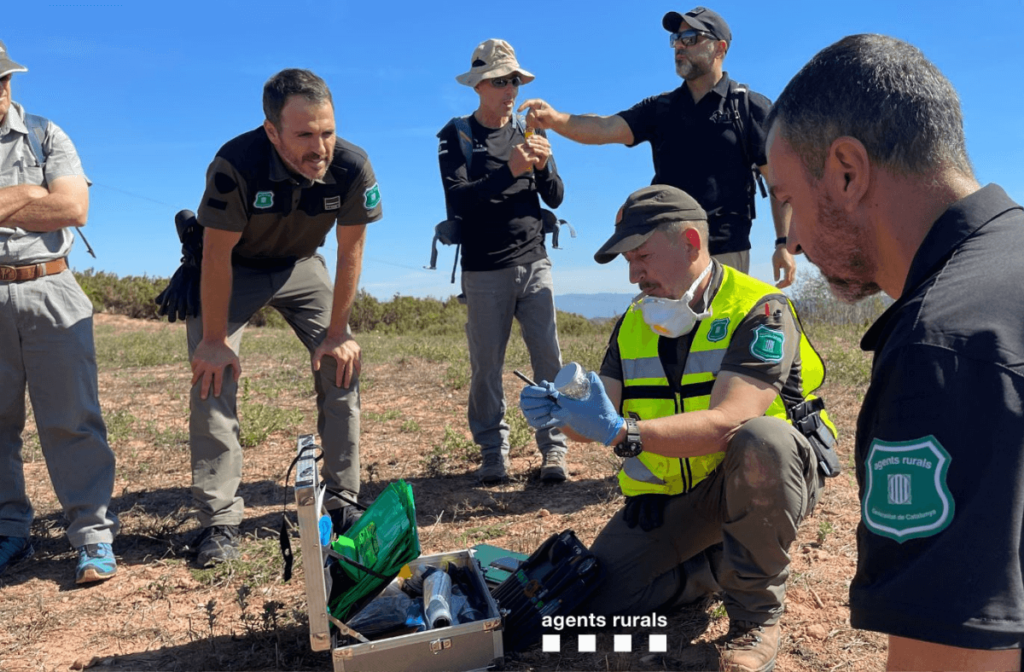
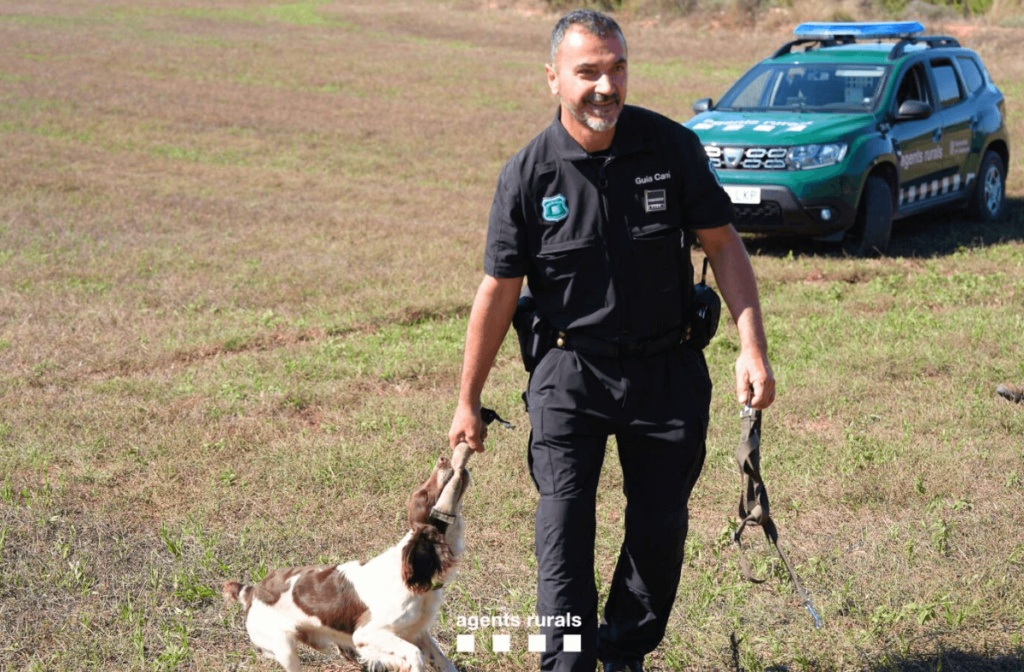
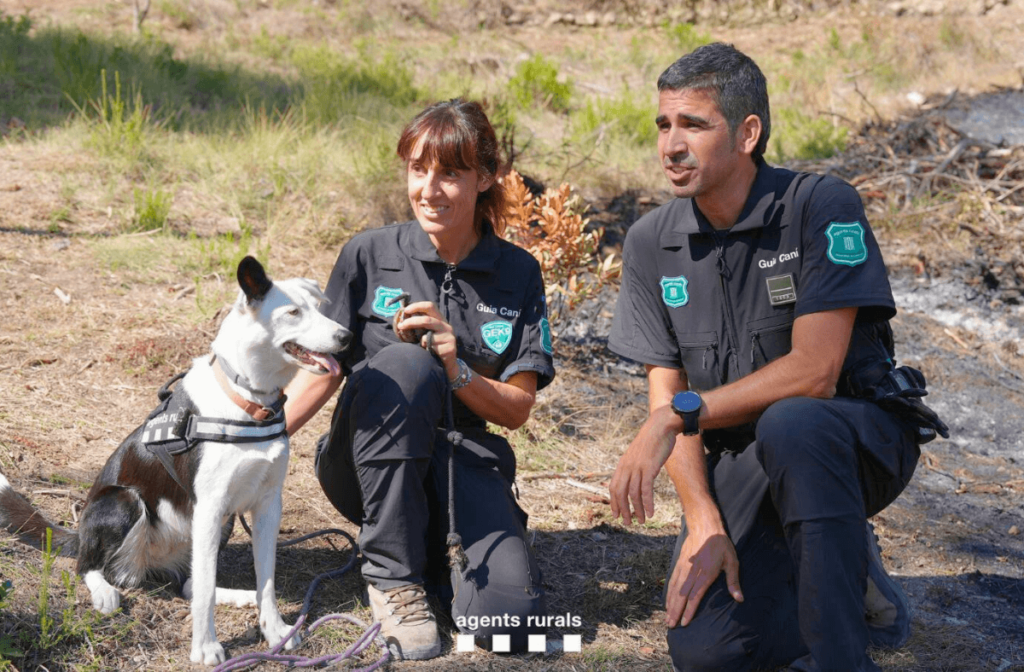
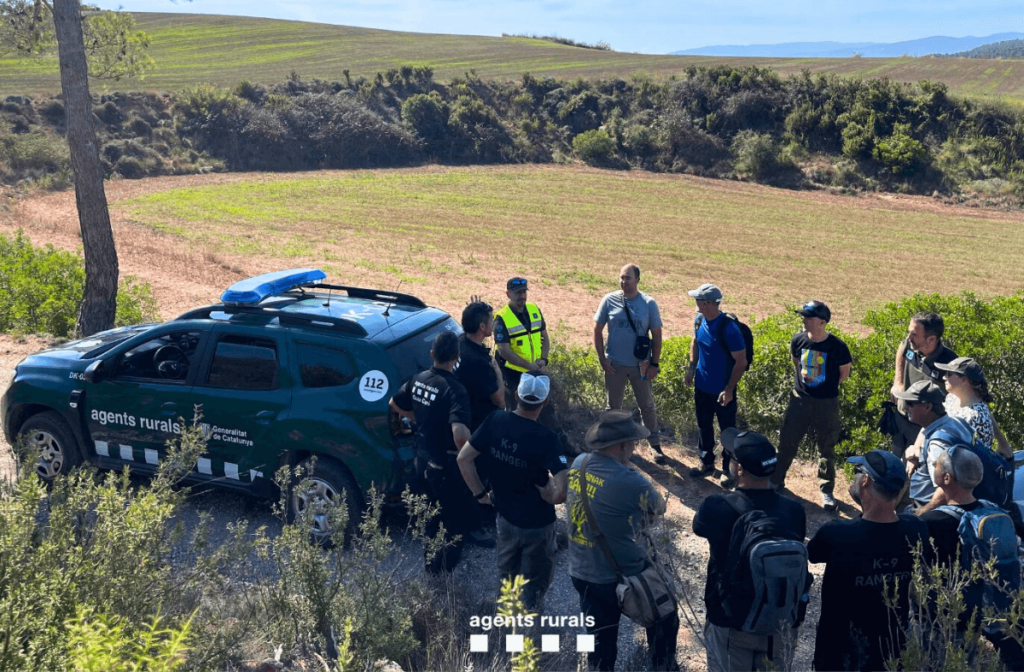
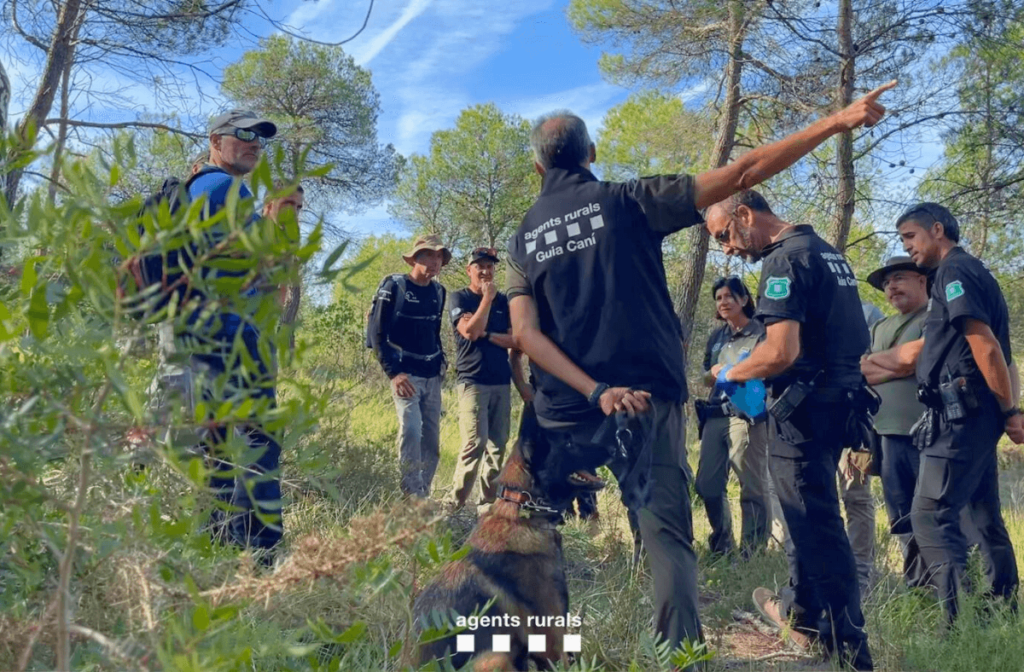
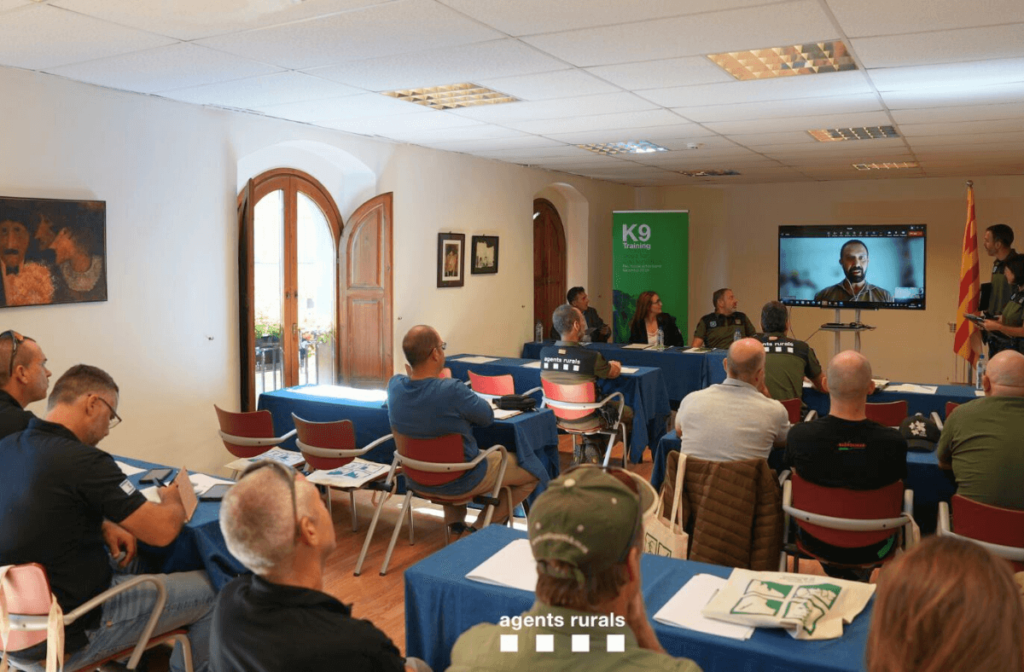
Participants appreciate practical relevance, knowledge gain and international exchange
The participants praised the practical relevance of the training and the knowledge gained: “Knowing the structure and organisation of the Catalan rangers will help me to improve my dog unit in this respect. I was also able to broaden my knowledge about working and caring for dogs, both in my field and in others. In addition, I have learned new specialities in dealing with dogs,” writes ranger Pedro Delgado, for example.
“It should be repeated from time to time”, says Haritz Beñaran. He has especially learned from the organisational model of the K9 unit and used the opportunity to build new relationships. Pedro agrees: “I found it great to meet and share experiences with rangers from such different countries, all of them wonderful people.” Only here and there more time would have been desirable to have enough space for exchange and all questions, which were, however, all dealt with, according to the unanimous feedback.
We will keep that in mind while planning the next K9 training. More on that soon, so stay tuned!
editorial work for this
content is supported by


